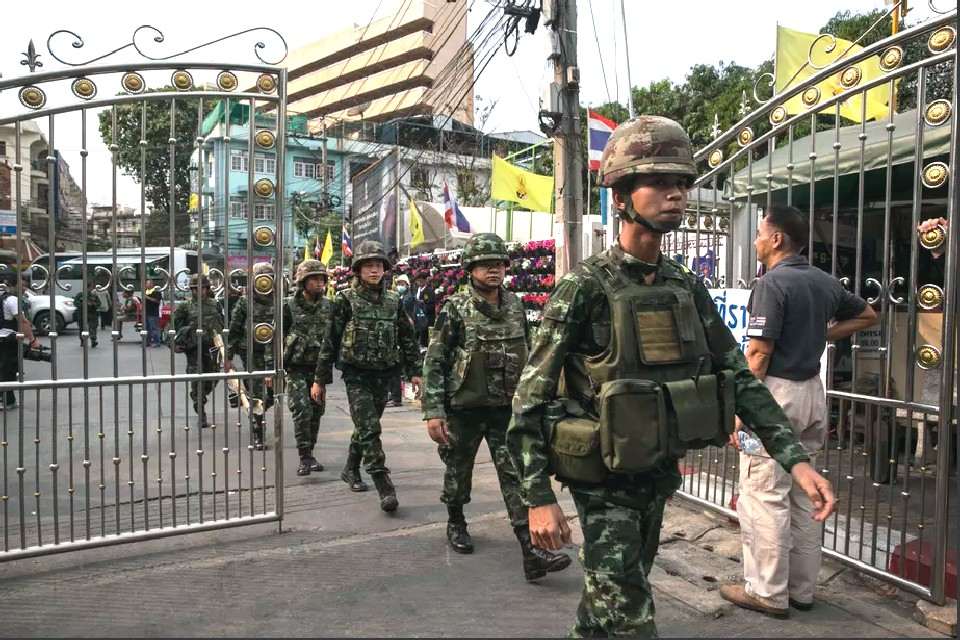
Although Thailand has suffered a military coup about every seven years since 1932, experts say the conditions are not right for a putsch right now. Coup historian Barbara Tuchman said, “To put the garment of legitimacy is the first aim of every coup,” but the circumstances are very different from those in 2014 when general Prayut Chan-o-cha cancelled the constitution with considerable public support. For example, the Ministry of Defence regulations have now been amended to allow the prime minister to suspend generals suspected of planning a coup as well as abolishing the military courts against which there was no appeal.
More significantly, the military-supporting civilian “yellow shirts” who organized vast street demonstrations against the civilian administration 10 years ago are no longer a powerful force in Thai politics. At that time, the pretext for military intervention was the attempt in parliament to abandon the criminal charges against exiled Thaksin Shinawatra and allow him to “come home”. Of course Thaksin is now a free man, having received even a pardon from the monarch, and an influential adviser to the ruling Pheu Thai party. The former prime minister two days ago dismissed the possibility of another coup precisely because the ingredients of violence and chaos on the Bangkok streets isn’t present.
These days the military-backed parties in the Thai parliament are much weaker than before. The unelected Senate, with 250 individuals nominated by the Prayut government, has been abolished and its successor body is not empowered to play any part in choosing the prime minister. Former deputy premier general Prawit Wongsuwon heads up the small Palang Pracharath Party, but this has recently split into two feuding parts with about half its members actually joining the civilian Pheu Thai administration. General Prayut Chan-o-cha, who split with general Prawit before last year’s general election, has now retired from active politics to become a member of the Privy Council. The Thai army, with its 1,700 generals, is no longer a unified force in the political arena.
Of course, the advent of yet another ruling military junta cannot be discounted altogether. Suspicion of billionaire tycoon Thaksin Shinawatra remains very significant and he has yet to face a trial on charges of disloyalty to the crown. But the main argument against the likelihood of a coup is the existence of an alternative way of subverting politics: the constitution court. The unelected body of nine judges, created in 1997, has jurisdiction over the constitutionality of parliamentary acts, the appointment and removal of public officials and issues regarding political parties.
This is the body which recently banned the popular Move Forward Party (now renamed People’s Party) and dismissed the prime minister Srettha Thavisin. Many observers now refer to the reality of judicial coups rather than military interventions. There is no need for “warfare” when you have “lawfare”.








